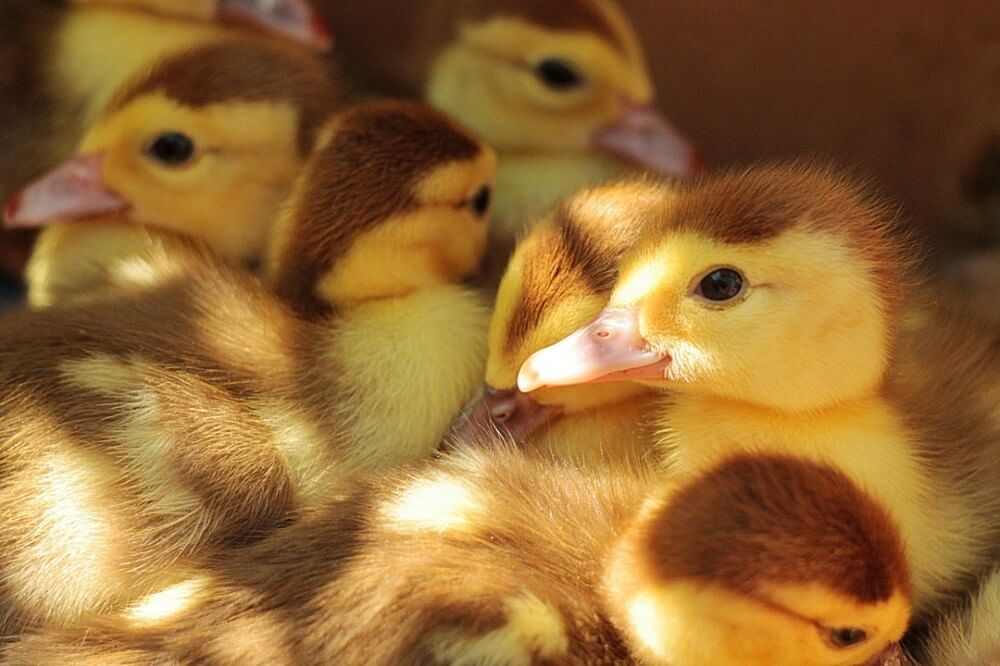Eat of the good things which We have provided for you. (Quran 2:172)

Eat of what is lawful and wholesome on the earth. (Quran 2:168)
He causes to grow for you thereby the crops, olives, palm trees, grapevines, and from all the fruits. Indeed in that is a sign for a people who give thought. (Quran 16:11)
It is an Islamic commandment, direct from the Holy Quran, that we should consume a healthy diet. But what is a healthy diet?
School classrooms teach us that this consists of meat, fish, grains, dairy, fruits and vegetables, and much of this constitutes a halal diet too.
So why should we, as Muslims, investigate veganism?
With health increasingly becoming a topic of debate in society, due to rising levels of obesity and disease, people are beginning to explore alternatives, which are on the whole much healthier.
Imam Ali (AS) famously said, “do not make your stomachs the graveyard of animals”.
During the time of the Prophet (SAW) most people led predominantly vegetarian lives, only eating meat on occasion.
Yet nowadays, meat is consumed on a daily basis, something the Prophet (SAW) strongly discouraged, stating its addictiveness could eventually lead to a lack of compassion and hard-heartedness.
Many hadith report the Prophet’s (SAW) diet to include fruits, such as dates, watermelons and figs, as well as bread with olive oil, vegetables and milk.
So, what’s the deal with milk?
The Quran and Hadith recommend it, I hear you say.
Well, the milk the Prophet (SAW) consumed was nothing like the milk of today.
In contemporary society, the dairy industry has become a cycle of slavery that exploits the female cow’s reproductive system. She must be artificially inseminated in order to become pregnant and then within a couple of days of her calf’s birth, she is separated from her baby forever.
Over the next few months, her milk is taken from her for human consumption.
It is narrated from Abdul Rahman bin Abdullah bin Mas’ud that a group of Companions were once on a journey with the Prophet (SAW) and he left them for a while. During his absence, they saw a bird with its two young, and they took the young ones from the nest. The mother bird was circling above in the air, beating its wings in grief, when the Prophet (SAW) came back. He said, “Who has hurt the feelings of this bird by taking its young? Return them to her.” (Muslim)
“A good deed done to an animal is like a good deed done to a human being, while an act of cruelty to an animal is as bad as cruelty to a human being.” (Prophet Muhammad SAW)
To add injury to insult, many cows are injected with hormones and antibiotics which end up in the milk and ultimately in our bodies too, with negative effects on our health. In conclusion then, the milk of today is nothing like the milk our Prophet (SAW) drank.
Meat and dairy nowadays are the product of a highly industrialised and inhumane process.
Another key factor closely related to the concept of halal, is an elusive term called tayyib.

Protecting the vulnerable is an Islamic principle.
Tayyib means pure, wholesome, healthy and hygienic. Where animal welfare is concerned, it also covers aspects relating to the treatment of animals.
So from the moment an animal is born until the moment it dies, it should be well looked after, fed nutritious food, given clean water and never harmed or mistreated.
Can this really be guaranteed for all animal products nowadays? Furthermore, can they really be considered healthy and wholesome anymore?
A multitude of studies have been conducted on plant-based diets and the conclusions made are that veganism offers countless benefits to health.
The British Medical Association is quoted on Animal Aid’s website as saying:
Vegetarians have lower rates of obesity, coronary heart disease, high blood pressure, large bowel disorders, cancers and gall stones. Cholesterol levels tend to be lower in vegetarians.
This is backed up by scientific studies, which found that whilst vegetarian diets lowered the risk of many diseases, vegan diets provided further protection against obesity, hypertension, type-2 diabetes and cardiovascular mortality (Le and Sabaté, 2014).
Vegans also enjoy a greater reduction in the risk of all cancers than those who follow other diets (Dinu, Abbate, Gensini, Casini, and Sofi, 2017) as well as being associated with a lower risk of hypothyroid disease (Tonstad, Nathan, Oda and Fraser, 2013).
In addition to lowering the risk of disease, studies have also indicated that vegans enjoy a much healthier mental state, with lower stress and anxiety levels than omnivores (Beezhold, Radnitz, Rinne, and DiMatteo, 2015)
The Viva Health The Incredible Vegan Health Report lists the following as benefits from following a vegan diet:
- Reduction in pain and joint stiffness amongst sufferers of arthritis
- Reduction in the frequency and severity of asthma attacks
- Healthier body weight and long-term weight management
- Improved bone health
- Significantly lower risk of developing cancers
- Significantly lower risk of cardiovascular disease
- 40% lower risk of cataracts
- Better management of COPD (chronic obstructive pulmonary disease) and a reduced risk of premature death
- Assistance in preventing autoimmune reactions in type 1 diabetes
- Protection against insulin resistance and thus lower risk of type 2 diabetes
- Improved digestive health and reduced intestinal inflammation
- Improvement in the symptoms of fibromyalgia
- Improved kidney health and protection against kidney damage
- Lower risk of cognitive decline and neurodegenerative diseases
- Much lower risk of metabolic syndrome
- Longevity – longer, healthier lives

Raise your children on compassion & health
Following a vegan lifestyle can therefore improve our health and strengthen our bodies, whilst also ensuring we make compassionate choices that do not harm Allah’s SWT creation.
Whoever is kind to the creatures of Allah, is kind to himself. (Prophet Muhammad SAW)
Whoever is merciful even to a sparrow, Allah will be merciful to him on the Day of Judgment. (Prophet Muhammad SAW, related by Abu Umama)
How do you transition to a plant-based diet?
There is a wealth of information available nowadays, so making the change to a compassionate, healthy lifestyle has never been easier. Here are my 5 top tips:
- Sign up to a vegan challenge such as Veganuary or The Great Vegan Challenge.
- Join a local vegan group or online group.
- Order free resources from organisations such as Viva, Animal Aid, Veganuary or PETA.
- Create a meal plan for the week ahead so you are prepared.
- Don’t beat yourself up if you make a mistake. Reading labels is difficult at first and companies love to sneak in animal ingredients where they don’t seem necessary! Just learn from the error and start over.
I pray this information is accurate and beneficial to others. I seek forgiveness if I have stated anything incorrectly.
I wish you all the very best with your compassionate lifestyles! Enjoy the many health benefits, as well as the knowledge that you are caring for the creation!
Ellen Ataie is a vegan Muslim, striving to lead a compassionate and sustainable lifestyle, who enjoys writing and learning.
The opinions expressed in this piece belong to Ellen Ataie and do not necessarily reflect the views of veganmuslims.com.
References:
Beezhold, B, Radnitz, C, Rinne, A, & DiMatteo, J (2015), ‘Vegans report less stress and anxiety than omnivores’, Nutritional Neuroscience, 18(7), pp. 289-296.
Dinu, M, Abbate, R, Gensini, G, Casini, A, & Sofi, F (2017), ‘Vegetarian, vegan diets and multiple health outcomes: A systematic review with meta-analysis of observational studies’, Critical Reviews In Food Science & Nutrition, 57(17), pp. 3640-3649.
Le, L. T., & Sabaté, J. (2014) ‘Beyond Meatless, the Health Effects of Vegan Diets: Findings
from the Adventist Cohorts’, Nutrients, 6, pp. 2131-2147.
Tonstad, S., Nathan, E., Oda, K., & Fraser, G. (2013) ‘Vegan Diets and Hypothyroidism’, Nutrients, 5, pp. 4642-4652.

Breatharian ways show we can live without eating flesh whether from fruit or animal.
Energy cultivation, decreasing energy-drain present in the lives of us, spiritual practice and unlocking the past can be a nourishing factor.
The nourishment received from above and other spiritual endeavours indeed such as prayer can be blocked by consuming food – or hampered. while doing so carefully makes sense; going through lows that can seem counterintuitive can even be the right thing – where to a perceiver within a frame of reality this can seem haram however such lacking situational difference. Thus – while its an external wording to Islam – breatharianism is kind of the opposite of halal even as such can be done wrongfully partially in unlocking prayer and ability to read and adhere the quran.
Vegan living is a step in that direction; unlocking compassion, empathic interconnection (strengthening connection to all Islam even if disillusionment occurs and separation from some places can and will occur (not necessarily against Islam even if inconvenient and Islam attampted used as an excuse to hold on to a person as such distance from the immediate muslim community yet nearing the greater muslim family)). The microbiological stress from harmfully or untransformed microbial life one connects with and connects Islam to by eating such as factory farmed animals even where attempted respect for the lives of the animals are done by purekilling that lack an understanding of the concept – this stress and strain; a burden to navigate: Costly on navigational and other neural structuring meaning braincapacity occupied resulting in a decrease of intelligence, comprehendability, spiritual capacity, ability to move about in the microbiological environmental layer to sorrounds etc. Not that the correlation here is direct between “vegan living and braincapacity” however its a very direct guideline/statistical coherence without me needing to see statistical proof in knowing above which is plentily supported by other statistical proof in one way or another. Naturally would be shot down in rationalization that definitely is not Islam yet as always uses absolutely anything available as a means of “proving”/making acceptable/etc. something that is haram.
Reply
Do you have a single verifiable example of a bretharian?
Reply
“To add injury to insult, many cows are injected with hormones and antibiotics which end up in the milk and ultimately in our bodies too, with negative effects on our health. In conclusion then, the milk of today is nothing like the milk our Prophet (SAW) drank.”–Really Truly said.
Nice Attempt to put all facts at one place. Veganism is about compassion and equalism. I fully agree with the thought that whatever quality it was at that time and it is stupid if we expect the same in today’s world. And even if we can replace our one-day meal with plant based diet this will really help innocent lives who are banished for no reason and separated from their mothers. I am not vegan but I think twice before I eat any non-vegan diet. I believe in survival and compassion. Once a person develop empathy with animals he would never think of harming them be it of any religion.
Reply
Well said Rashi.
Reply